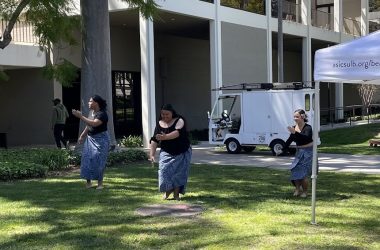The Cal State University finance committee passed two resolutions for a budget contingency plan yesterday that would raise tuition by five percent, depending on the outcome of the November election.
The Board of Trustees is scheduled to vote on the budget plan today.
The plans propose two strategies that solely rely on the passage or failure of Proposition 30, which would temporarily increase California sales tax and income taxes for individuals earning more than $250,000 per year. If the proposition fails, the CSU would face a $250 million trigger cut.
The committee recommended that the Board increase tuition by 5 percent or $150 in the spring semester should the proposition fail. The increase would raise $58 million for 2012-13, and it would continue throughout the 2013-14 academic year, according to the committee.
Non-resident students would also face a 7 percent increase through the tuition supplement fee.
The increase would be the lowest tuition hike the system has approved in the last seven years, according to Chancellor Charles B. Reed.
The proposal met boos and yells from the gallery, but overall, members of the Board said they realized the need for the increase.
Trustee Roberta Achtenberg said that although she swore she would not vote for another tuition increase while she sat on the Board, she understood the “terrible consequences” the system would face should Prop. 30 fail.
In order to compensate for the $250 million loss, the CSU would also cut faculty and staff positions, course offerings and enrollment, Reed said.
“Under these very difficult circumstances placed upon us by the state legislature, we need to have a contingency strategy,” CSULB President F. King Alexander, who was present at the meeting, said via email. “The $150 fee increase, if Prop. 30 fails, is essential for us. However, it does not come close to what we will lose. A failed Prop. 30 would cut $600 per CSULB student in educational support and instruction.”
If Prop. 30 passes, however, the CSU would take the tuition buyout deal first offered to the system in June.
Under the deal, the state would give the CSU $125 million in 2013-14 if the system rescinds its 9 percent tuition increase collected this fall.
“If students leave they will get a check,” Reed said. “If students continue we will give them a credit, and they won’t pay anything for the second semester.”
However, the Board’s agreeing to take the deal would leave the CSU with a $132 million hole in its budget until the following academic year.
The one-time budget gap could be mitigated by $50 million through a transfer in funds from the Continuing Education Revenue Fund made by the chancellor, according to Reed. This would leave the CSU with an $82 million deficit that the system would somehow have to compensate for.
Overall, by taking the tuition buyout, the CSU would lose $7 million.
While the tuition rollback was commended by public speakers at the meeting – including California Faculty Association President Lilian Taiz and CSULB Associated Students, Inc. President John Haberstroh – the Board still faced criticism for the third resolution the finance committee recommended.
The resolution includes three fees that would charge students for delaying graduation, repeating classes and registering for more than 16 units a semester. The fees would go into effect fall 2013 and are expected to generate $35 million for the CSU.
The committee postponed voting on the resolution yesterday, pushing the vote to November’s CSU Board of Trustees meeting.
Reed said other states, such as North Carolina, Arizona, Texas and Florida, had specials fees in place for students going over the units needed to graduate.
“Since when is it a bad thing to become a more educated person?” Haberstroh asked the Board. “If Prop. 30 does not pass, then I think talks should be resumed.”
Trustees also had concerns about the proposed fees.
“My feelings are that current students should be exempt from these fees and future students can be educated on these fees, so that super seniors who need 15 or more units don’t need to pay excessive tuition fees to graduate,” student Trustee Jillian Ruddell said.
According to Reed, the proposed fees are designed to open up more seats for students.
Trustee Lupe Garcia said if the CSU wanted to change behavior, then it would first educate students on the issues.
“In my mind, it seems that increasing fees to modify behavior shouldn’t be our first shot out of the gate,” she said.
Reed said that in 10 years of trying to encourage students to graduate more quickly, he had not seen any change.
The Board will continue its meeting today at 8 a.m. at the Chancellor’s Office in Downtown Long Beach.




